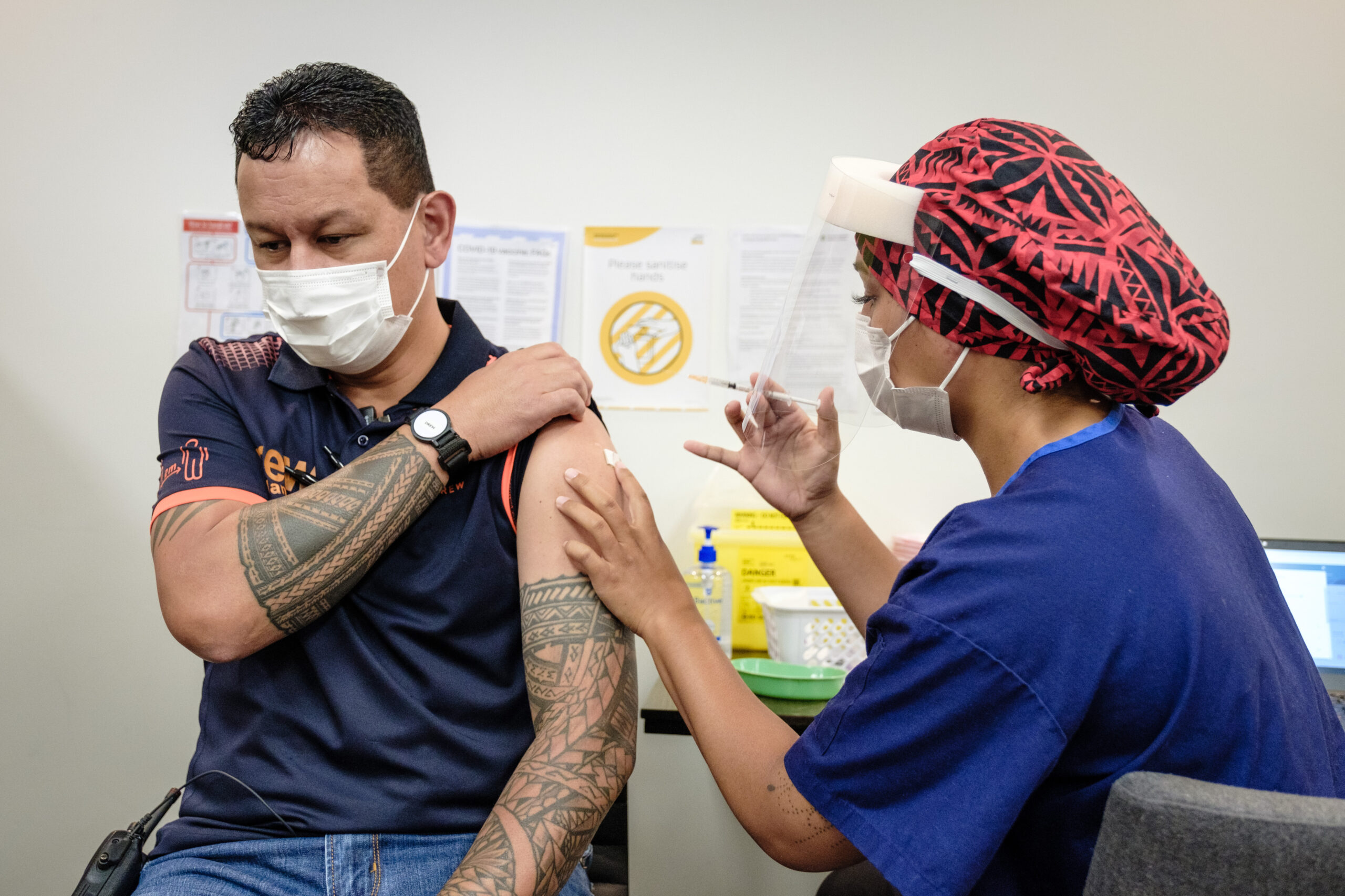“Delta has very quickly become a Māori pandemic,” according to Simon Royal of the National Hauora Coalition.
The Waitangi Tribunal has heard evidence of systemic neglect towards Māori in the government’s pandemic response, in an urgent hearing this week.
On day two of the hearing, Professor Shaun Hendy told the tribunal he was shocked the government ignored advice to prioritise Māori in the vaccine rollout.
“It is particularly clear that the work that we did on the impacts for Māori, particularly around the health risks, was not taken into account in the vaccine roll-out, and it’s hard to understand why.”
Hendy’s modelling clearly showed that infected Māori are 2.5 times more likely to be hositalised than non-Māori and non-Pasifika.
“It is a scary number and should have been taken seriously,” he said.
Hendy highlighted that a 59-year-old Māori with no pre-existing conditions is just as likely to end up in hospital as an 80-year-old Pākehā, while statistician Len Cook pointed out that the age-based priority groups were inherently biased against Māori because their overall population is significantly younger than other groups.
On Thursday, Dr Ashley Bloomfield told the hearing that he advised the government to include Māori over the age of 50 in the first priority group for the vaccine rollout. He also advised against moving to the traffic light system until Māori had reached 90 per cent.
“It was essential for us right from the start of our vaccination pre programme that we did not allow or tolerate lower vaccination rates among Māori as we delivered the programme,”
“We gave our best advice. It falls to Government to assess the full range of advice.”
Dr Rawiri McKree Jansen said that the government ignored Māori expert advice on vaccines, while isolated primary health providers faced numerous bureaucratic barriers in accessing the funding and resources required to protect their communities from COVID-19.
“It’s not equity if we get vaccinated last, it is not partnership when the Crown ignores advice because we are only in advisory positions, it is not active protection if we are in harm’s way.”
Bay of Plenty Māori health provider Te Puna Ora o Mataatua told the council that despite winning the Ministry of Health Equity Award for their mobile vaccination clinic in May this year, they faced “barrier after barrier” trying to secure funding to expand the programme.
“It was a five-month-long battle with the DHB and Eastern Bay Primary Health Alliance for Te Puna Ora to get accreditation so we could store vaccines on-site. Without cold chain storage accreditation, we were only able to be given 30 vaccine doses per day at our fixed site.”
Māori paediatrician Dr Danny de Lore said that looking forward, the government must prioritise tamariki Māori as soon as vaccines are approved for those aged 5 to 11, especially as the Omicron variant looms abroad.
Microbiologist Dr Siouxsie Wiles and the New Zealand Māori Council supported these claims, emphasising that while the variant showed early signs of being relatively mild for adults, it appears far more infectious and is particularly damaging for children’s long term lung health.
Researcher Charles Waldegrave told the hearing that Māori children are far more likely to have pre-existing conditions that exacerbate these long term effects, largely because they are twice as likely to live in damp, overcrowded homes, which would also speed the spread of COVID-19 in Māori communities.
More coverage of the Waitangi Tribunal hearing:
Covid-19 modelling showed risk to Māori but Government failed to act, Waitangi Tribunal hears – Stuff
Simon Royal | CEO National Hauora Coalition – Waatea News
Crown fronts Waitangi Tribunal on Covid response – RNZ
Director-General of Health Ashley Bloomfield says Government ‘is right’ to seek other advice on COVID-19 response – Newshub
Analysis: Māori no longer shouting Covid grievances into void – 1News
